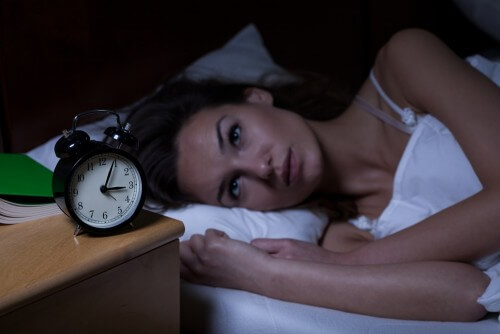This is according to a new study at the University of Haifa in collaboration with the Tel Aviv Sorasky (Ichilov) Medical Center. and revealed a one-way connection between them. "The findings emphasize the importance of the combined treatment of both phenomena, to prevent back pain and improve the quality of sleep," they say

Do you suffer from insomnia? The chances of you having back pain increase significantly, according to a new study conducted at the University of Haifa. "After neutralizing intervening variables, such as socioeconomic status, lifestyle and more, we distilled the conclusion that insomnia predicts back pain, but not the other way around," said Dr. Maayan Agmon from the Cheryl Spencer Department of Nursing and Dr. Galit Ammon from the department of Psychology at the University of Haifa, conducted the research, which was done in collaboration with Prof. Shlomo Berliner and Prof. Yitzhak Shapira from the Tel Aviv Medical Center named after Sorasky (Ichilov).
Back pain is a fairly common phenomenon: 60-80% of the adult population suffers from it, at some point in their lives. Moreover, back pain is in first place on the scale of compensation paid to workers, and as evidence, in Europe they constitute an average of 0.5%-2% of the gross national product. The reasons for this are many and varied and according to experts' estimates, 90% of back pain sufferers have no common denominator, but about 50% of people who suffer from back pain also reported insomnia, which is defined as the inability to fall asleep or stay asleep, long hours awake at night or waking up Too early, for about a month. It is known that insomnia increases the individual's sensitivity to pain and that sufferers of the phenomenon experience spontaneous pain more often and at a higher intensity, compared to healthy people, but the study reveals for the first time a direct link between insomnia and back pain.
The subjects in the study are employees who come to the Tel Aviv Sourasky Medical Center (Ichilov) for routine screening tests, and in total 3 people, 2,131 years old, with 46.2 years of education and who work 15.8 hours a day on average, were tested at 9.6 different time points. The large scope of the study is one of its outstanding advantages, in addition to the heterogeneity of the subjects and the fact that those with medical problems were screened and not included in the final results and the long time period (8 years) in which it was carried out.
The back pain diagnosis of the subjects in the study was carried out using two criteria - verification of medical history by the subject's visit to a doctor, at least once during the 12 months, and an interview that confirmed the consistency of the back pain for at least 3 months. As mentioned, the chances of workers, whose health is normal but suffer from insomnia, to suffer from back pain, is almost 150 percent higher than those who sleep normally. Among women, the correlation between insomnia and back pain is higher, and indeed - back pain is more common among women than among men.
"Such a comprehensive study, which takes place over such a long period of time, is the right way to show the connection between the two common medical phenomena. We tested healthy, working adults over 3 time periods. After neutralizing intervening variables, such as socioeconomic status, lifestyle and more, we distilled the conclusion that insomnia predicts back pain, but not the other way around. The cause of this is still unknown, but it is possible that the connection between the phenomena stems from a third biological factor, which we are currently unable to put our finger on," they said. "Currently there are several possible factors, among them stress - people who suffer from insomnia describe their lives as stressful, so it is almost certain that they will suffer from chronic restlessness which will lead to muscle tension, reduce the number of short rests in physical activity and cause back pain", said the study editors.

2 תגובות
With your permission, I would like to raise another hypothesis.
I know that patients who suffer from tinnitus ("ringing in the ears" in the vernacular), are more sensitive to noise while they lie down to sleep. The explanation is a quiet environment free of stimuli that would distract from the tinnitus.
The connection to your research is the possibility that the subjects have back pain itself is relatively low and therefore they do not feel it during the day or during sleep. But since the pain is there, it manifests itself in insomnia.
Over time, the pain, apparently, worsens for some and so does the awareness.
Trying to sleep for a long time causes back pain, also a fan that is turned on while sleeping adds fuel to the fire.
If you fell asleep with pants that have a belt, you will wake up with back pain.
In contrast, Air shoes that absorb shocks during the day reduce lower back pain.